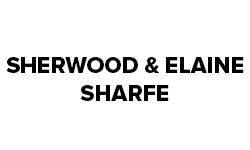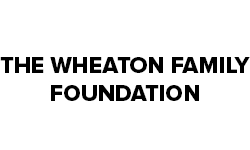Part B Learning Plan
Teachers may want to consider putting the questions into a “Before, During, After” chart to note the changes in students’ thinking as a result of the inquiries.
- Determine how worldview influences the decisions, choices, and interactions of society (IN9.4);
- Compare differing perspectives regarding the acquisition and distribution of resources and wealth (RW9.1);
- Evaluate how trade and transportation impacted the development of societies (RW9.2); and,
- Determine how past technologies impacted contemporary society (RW9.3).
Questions to Guide Inquiry
Essential Questions: Guiding Questions
- What is the relationship between the natural environment and the development of society?
- Does your environment and where you live/sense of place/relationship affect how your cultural and social behaviours develop?
- Are you a user or protector of the environment?
- Does the environment impact your beliefs and values?
- What influences your decision-making?
- How important is understanding history to current decision-making?
- What causes you to change your mind?
- What does it take for society to make a change?
- How large is your sphere of influence and what can you control?
- What is the impact of those influences: positive or negative?
- Is it possible to control the impact of those influences?
- What influences on the world does our lifestyle create?
- How do you determine fairness?
- Whose perspective should be considered when determining what is fair?
- What responsibilities come with affirming a multicultural society?
- How are multiple perspectives considered in the decision making process?
- Whose perspective has framed most of historical decision-making?
- How important is culture to a person’s identity?
- What are the impacts of many cultures living together?
- What influence does worldview have on a person’s identity?
- What is the impact of Canada’s multicultural policy on the development of Canadian citizens?
Vocabulary
- acquisition
- colonization
- distribution
- empathy
- empire building
- imperial
- imperialism
- marginalization
- territorial expansion
- worldview
CONNECT TO TOPIC AND SURFACE STUDENTS’ THINKING ABOUT …
What is the influence of worldview on the choices, decisions, and interactions in a society?
Pose these essential questions to students to surface their thinking.
- What influences your decision-making?
- How important is understanding history to current decision-making?
- What causes you to change your mind?
- What does it take for society to make a change?
- How large is your sphere of influence and what can you control?
- What is the impact of those influences: positive or negative?
- Is it possible to control the impact of your decisions?
- What responsibilities come with affirming a multicultural society?
- How important is culture to a person’s identity?
- What are the impacts of many cultures living together?
- What influence does worldview have on a person’s identity?
- What is your worldview?
- What do you think about the way people should be treated, the importance of human rights, the way we should live with others in our world?
- How do you resolve differences of opinion that result from differing perspectives and experiences?
- What do you think is your responsibility to the environment?
Grade 9 students study the Roots of Society.
Students will explore historical societies of Macedonia, Rome, England, Spain, France, and Mongolia. They will also study at least one historical Indigenous society of North America as well as:
- Mesopotamia or Ancient Egypt;
- Ancient Greece or Rome;
- Aztec, Incan, or Mayan civilizations;
- Medieval Europe or Renaissance Europe;
- Ancient China or Japan.
Historical indigenous societies include:
- One Indigenous society of North America
- Mesopotamia or Ancient Egypt;
- Ancient Greece or Rome;
- Aztec, Incan, or Mayan civilizations;
- Medieval Europe or Renaissance Europe;
- Ancient China or Japan.
These inquiries have students examining the impact of ancient civilizations on present society. Teachers are encouraged to assign students specific ancient societies and have students study those same civilizations repeatedly so that students can gain a stronger understanding of the diversities of those civilizations.
Watch online video of Malala Yousafzai, female Pakistan student shot for attempting to attend school, on www.Youtube.com . After the video surface what students knew or learned about the rules of the Taliban government in regards to females attending school. (see appendix for article and graphic organizer to support research on Malala Yousafzai)
- What things were evident about Malala’s worldview?
- What did students learn or can infer about the influence of Malala’s worldview on her personal choices, decisions, and interactions? e.
- choice of friends,
- choice of fashion,
- the significance of education,
- participation or non-participation in events,
- choice of pastimes and recreational activities,
- approaches to nature and ecology,
- approaches to consumerism
- What personal connections are they making to Malala’s experiences?
- Fill out your side of the graphic organizer and compare experiences.
- Look for similarities and differences. Why do they exist?
- What do your choices, your behaviours, your experiences say about your worldviews?
- Could Malala’s experience happen in Canada? Justify your answer and explain your thinking.
- Record your reflection in your journal.
- How has the past (cultural beliefs and behaviours) influenced Malala’s present societal experience?
- What is the relationship between history and the present in her circumstances?
DEVELOPING UNDERSTANDING
Evaluate the authenticity and validity of information sources used in the inquiry process.
- Using the research and based on the actions of their researched countries, have students analyze and infer what the country believed about:
- territorial expansion,
- colonization,
- empire-building
- What was the impact of such activities on the indigenous cultures and peoples?
- What was the influence and impact of worldview on the progress or decline of the societies studied?
- Explain how the worldview of the Indigenous people impacted the progress or decline of their society.
- Where do you see the impact of history on current decision-making?
- Go back to your worldview exploration of Malala and yourself. Where do you see the impact of history on current worldviews?
- Explain the impact of the worldview of Canadian First Nations, in the signing of Treaties. Include the value placed on harmony and trust.
CONNECT TO TOPIC AND SURFACE STUDENTS’ THINKING ABOUT …
Teachers may choose to begin the discussion connecting the use of resources to the economy by talking about present day Saskatchewan examples. By using more current and concrete examples, teachers can judge the baseline knowledge of their students regarding these concepts and be able to provide necessary supports when research on historical societies begins.
How does history affect you today?
How did differing perspectives and worldview impact the development of societies studied?
What is the impact of past beliefs on current society?
Students will:
- Consider the views and behaviours around the:
- acquisition and distribution of resources and wealth;
- the significance of trade and transportation; and,
- the impacts of technology.
Impact of Resources and Wealth:
Acquisition, Use and Distribution
In your respective country identify:
- The resources that contributed to the wealth of those societies.
- How those resources were acquired and distributed.
- How those resources were produced/refined/manufactured.
- How the wealth from those resources was distributed.
- What was the impact of those decisions on the populations studied?
- What can you infer about the values of the societies based on their behaviours?
- What are the similarities and differences?
- What patterns are students noticing?
- What current connections/impacts on contemporary Canada resulted from these historical behaviours?
Divide class into groups and give each group or have groups choose a specific area of research to learn about and present to class. Each group must find out the information in the question posed below. Encourage students to present information learned in a variety of modes including speaking, writing, drama, multimedia, or other modes so that all students have an entrance point for demonstrating their learning and understanding.
If students are having difficulty with their research, check their understanding of the concepts. Do this by connecting the questions to present day Saskatchewan examples.
In your respective country identify:
Transportation
- What was/were the preferred modes of transportation?
- How did the physical geography impact transportation?
- How successful were the transportation modes?
Trade
- What were the motives for trade?
- How was trade conducted?/What were the approaches to trade?
- Who were the trading partners?
- What were the effects of trade on the economy and prosperity of that society?
- What are the similarities and differences?
- What patterns are students noticing?
- What current connections/impacts on contemporary Canada resulted from these historical behaviours?
Impact of Tools/Technology:
In your respective country:
- Illustrate on a timeline the following achievements: (Use one timeline for comparison)
- scientific,
- mathematical,
- technological,
- artistic, and
- cultural
- Explain the impact of tools and other technologies developed:
- on the economies and lifestyles of those societies.
- upon other societies studied
- What are the similarities and differences?
- What patterns are students noticing?
- What current impacts on contemporary Canada resulted from these historical developments?
- Within the following areas, identify and represent the achievements and technologies of the contemporary world that have their origins in the achievements and technologies of societies studied:
- weapons,
- dyes,
- medications,
- tools,
- transportation methods,
- navigation instruments,
- architecture,
- printing,
- mathematics
APPLY AND EXTEND KNOWLEDGE
Research the beginnings of Medicare in the province of Saskatchewan, 1962, under the leadership of Tommy Douglas. Reflect in your journal on the values of a society that would vote for universal health care.
Examine other countries that have universal health care and discover the roots or impetus for that development in that particular country. What values are demonstrated in those countries?
Prepare a radio or television show on the historical events that shaped our country during the years of territorial expansion and empire building. Highlight the personal lives and stories that come from your research.
EVIDENCE OF LEARNING
- The impact of territorial expansion and empire building on the lives of indigenous populations.
- The relationship between the natural environment and the development of a society.
- Tthe differing perspectives regarding the acquisition and distribution of resources.
Final reflection on Inquiry Questions
Inquiry
- What is the influence of worldview on the choices, decisions, and interaction in a society?
- How important is understanding history to understanding current decision making?
- What does it take for a society to make a change?
- What responsibilities come with affirming a multicultural society?
- What influence does worldview have on a person’s identity?
- What are the impacts of many cultures living together?
Inquiry
How does history impact you today?
- How did differing perspectives and worldview impact the development of societies studied?
- Whose perspective is most commonly reflected in decision-making?
- What would it take to make a change?
- What is the impact of past beliefs on current society?
- Why is it important to know this information?
- What will you do with this information as a citizen?
STUDENT CITIZENSHIP JOURNAL OPPORTUNITIES
Students are keeping a Citizenship Journal to reflect upon their developing views of citizenship. This section provides prompts for student journals. Students are invited to choose one that interests them or propose their own. Students can also respond to any of the essential questions.
Students are encouraged to respond using a variety of genres.
- In a reflective piece of writing, explore the impact of social progress on the natural environment and indigenous cultures of the world.
- Do you think indigenous people have paid a greater price in order for societies to progress? (natural resources and health natural resources)
- Do you think the natural environment has paid a greater price for societies progress? (natural resources and health natural resources)
- What is progress?
- What might be the values of a society that would vote for universal health care?
© 2024 Concentus Citizenship Education Foundation Inc. All Rights Reserved.










